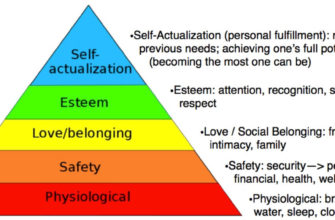Getting cash from your S.O. may appear like a simple fix to money issues. But remember, honesty and communication are the foundations of a strong relationship. Here, we will explore the lies people use to get money from their partners.
- Faked emergencies: Some people pretend to have a financial emergency, like medical bills or car repairs, to request money from their partners.
- Debt trap: Some manipulate their partners with tales of debt or unpaid rent to get financial aid.
- Fake charity: Others take advantage of their partner’s kindness by creating false charitable causes or pretending to help someone in need and asking for cash.
- Responsibility inheritance: A few use family obligations as an excuse to ask their partners for money. They claim they need to support an ill family member or pay for a loved one’s education.
These actions can hurt any relationship. Lies come back to haunt you in the end. Open communication and trust are necessary for a healthy partnership.
Rather than lying, communication and honesty should be prioritized over all else when it comes to financial struggles. It is advised to plan a budget, track expenses and prioritize savings each month. Plus, seek professional financial advice if needed. This approach will benefit partners financially, while strengthening their relationship.
Lies about Expenses

To manage your expenses with your partner without being truthful, ‘Lies about Expenses’ with ‘Lie about an Emergency Expense, Lie about Paying for a Relative’s Medical Bill, and Lie about Paying for Rent or Mortgage’ are some possible solutions.
Lie about an Emergency Expense
Temptation to make up a fictitious expense may be high, but it’s wrong and can get you in trouble. If you’re in a money pinch, be honest. Explain the facts and show that you’re trying to make it better. This will work better than lying.
Making up stories about urgent costs won’t fix the real problems with your budget. Be truthful to yourself and work on your spending habits to find financial stability.
Pro Tip: If unexpected costs are regular, create an emergency fund. Put away at least 3-6 months of living expenses for any future emergencies.
Some say money can’t buy happiness, but it sure can buy peace of mind when you don’t have to pay for family members’ medical bills.
Lie about Paying for a Relative’s Medical Bill
Everyone wants to support their kin in tough times. But, the costs can be too much. Some people then lie about paying medical bills. This is wrong! Plus, it could hurt your finances in the future.
An alternative is to budget and look into government programs that may help with costs. Plus, get advice from a financial advisor or counselor.
Discuss with family members ways to share the burden. Everyone can contribute and no one needs to bear the weight alone. Why pay rent when you can just strategically place cardboard boxes?
Lie about Paying for Rent or Mortgage
Many people may think it’s an easy lie to get away with to be dishonest about rent or mortgage payments. But it can have serious repercussions, like eviction or foreclosure. Plus, it can damage your credit history and make it hard to get loans in the future.
If you’re struggling to pay, seek help from a financial advisor or housing counseling agency. Honesty is always the best policy, and being open and honest can save you trouble down the road.
Keep in mind that there could be special circumstances that lead someone to lie about their housing expenses. So, make sure to address these issues properly.
Pro tip: Keeping records and budgeting can help you stay on top of payments and stay away from lies. Who needs a big salary when you’ve got an inventive way to stretch the truth on expenses?
Lies about Income

To manage your finances, lies about income may seem like a quick fix. However, being deceptive to your partner can harm the trust in your relationship. In order to avoid such situations, this section on “Lies about Income” with “Lie about Losing Your Job, Lie about Being Behind on Bills, and Lie about Unexpected Expenses” helps in exploring alternative ways of maintaining a trustworthy relationship.
Lie about Losing Your Job
Unemployment is a critical issue that can make one feel ashamed, unworthy, and embarrassed. However, some might lie about being jobless to get sympathy or benefit from others. It’s essential to recognize the seriousness of such dishonesty, which could hurt oneself and others.
Lying about job loss may seem trivial, but it has severe repercussions in the future. Falsifying info will deny you potential chances and damage your reputation if uncovered. Additionally, taking advantage of people could lead to legal repercussions.
Besides, people who pretend to be unemployed to gain pity belittle those enduring the challenges of unemployment. Always choose honesty for a guilt-free conscience and self-respect.
Remember that lying about your income or financial state on an official document is illegal per IRS code section 7206(1). Not disclosing all taxable income will result in heavy fines or even imprisonment.
The CareerBuilder survey of 2,257 U.S hiring managers and HR professionals conducted by Harris Poll in 2017 found that three-quarters of employers caught a lie on a resume.
Rather than fabricating poverty, seek genuine help without compromising your integrity through counseling services or unemployment insurance programs. Stop pretending to be broke when it’s really a balancing act between rent and ramen noodles.
Lie about Being Behind on Bills
Managing finances can be tough, so people sometimes lie about their financial situation. One common lie is about being behind on bills. It may seem like the easy way out, but it could lead to serious problems in the future.
Lying about being behind on bills might hurt your credit score and get you into legal trouble. You’d also pile up debt with late fees. So, it’s important to be honest with yourself and lenders to stay in control of your finances.
Hiding your financial issues from loved ones can have serious long-term consequences. It could ruin relationships, lead to guilt, and cause stress and anxiety.
I remember a friend who lied about being behind on rent. After missing payments and making false promises, she was evicted. She lost credibility and had to deal with moving costs and deposits. It was a harsh lesson in missed opportunities from holding onto lies.
Finally, it’s essential to keep accurate records of bill payments. This will help you stay accountable and focus on your goals without worrying about money.
Lie about Unexpected Expenses
Unexpected expenses can be a hassle, and many people try to hide them to seem more financially stable. This can lead to debt and mistrust in relationships. The best way to handle it is to expect the unexpected. Set aside money each month for an emergency fund. Track your spending, cut back on unnecessary expenses, and get insurance coverage.
My friend recently revealed she had been lying about unexpected car repairs. This caused a lot of stress and tension between her and her partner. It’s better to be honest and not feel ashamed to ask for help if needed. Debt never leaves us alone, so it’s best to be prepared.
Lies about Debt

To avoid disclosing your debt realities, you might resort to telling lies about your financial obligations to your partner. In order to manage lies about debt with your boyfriend, sub-sections like lying about credit card debt, student loans, and other debts can be a solution.
Lie about Credit Card Debt
Credit card debt is a financial burden for many people. The myth that credit cards can be used freely is false. Overspending leads to a debt cycle that’s hard to escape. People use their credit cards carelessly, without thinking of the long-term consequences. Not paying off the balance in full each month results in interest charges and fees.
There’s a psychology behind using credit cards. Credit card companies use reward systems to encourage users to keep spending and accumulating debt. Maxine’s story illustrates this point. She thought she was managing her finances well by making minimum payments, but she didn’t realize how interest and fees added up. Eventually, she was overwhelmed by debt.
Student loans are like a bad one-night stand. You’re left feeling used, regretful, and in debt.
Lie about Student Loans
Beware the myth that student loans are “good debt“! Interest rates are high, and many students take out more than they need. This can lead to a mountain of debt taking years to repay.
Moreover, many graduates struggle to find jobs that pay enough to cover monthly loan payments. And here’s the kicker – student loans cannot be discharged through bankruptcy. This means they will follow you for life!
So avoid student loans. Consider scholarships, grants, and part-time jobs to help with education costs. They’ll leave you in better financial shape after graduation.
Don’t let student loans stop you from achieving your dreams. Be smart with your money now and you won’t have to worry about overwhelming debt later. Collecting it all like Pokémon is not the answer!
Lie about Other Debts
It’s a lie that certain types of debt are “better” or “worse” than others. All debt carries risk and should be managed with care.
For instance, some think mortgage debt is “good” because of rising home values. But during the housing crisis, values dropped and many homeowners had more debt than their home was worth.
People also think student loan debt is “worthwhile” since it leads to higher-paying jobs. But you need to weigh the cost of student loans against potential earnings.
Credit card debt gets a bad rap for its high interest rates and fees. Still, any type of debt can become unmanageable if not paid off correctly.
The truth is, there’s no such thing as “good” and “bad” debt. Just varying levels of risk and reward. Individuals should assess their finances and make smart decisions about taking on new debts.
Take the case of a young couple who thought a car loan would help their credit scores. But they didn’t consider how it would affect their budget until it was too late. They had to sell the car at a loss to get out from under the debt.
Lies about Gifts

To get money from your boyfriend for a gift, you may feel like you have to resort to telling lies. In order to do this effectively, the section “Lies About Gifts” with sub-sections that include “Lie about a Special Occasion,” “Lie about a Gift You Want to Buy,” and “Lie about a “Surprise” Gift for Your Boyfriend” can be your solution.
Lie about a Special Occasion
Special occasions are meant to rejoice with loved ones. But, sometimes individuals may lie about a special occasion to get gifts. This is dishonest and can hurt relationships.
Gifts should come from the heart, not lies. Manipulating others to give gifts under untrue stories can cause distrust and anger in relationships.
Honesty is key when it comes to special occasions. Speak up about financial constraints or personal taste instead of lying for presents. Being truthful prevents misunderstandings and strengthens relationships with your loved ones.
Pro Tip: The value of a gift isn’t the price, but the thought behind it. A thoughtful, loving present is more valuable than an expensive one obtained by lying. Nothing says ‘I thought of you’ like a gift card to a shop you never go to!
Lie about a Gift You Want to Buy
Gift-giving can be tricky. You want to pick something meaningful and useful, without breaking the bank. Consider lying about a gift as an option!
For instance, if your friend or beloved one has been longing for an overpriced designer handbag, tell them it’s sold out or not available in the desired color. This way, they won’t feel disappointed, and you can still surprise them with something they’ll be excited about.
Be careful not to choose a lie that’s too obvious or unrealistic. Consider what your friend or loved one would realistically believe. Also, think about their likes and things they need when picking a gift. If they’ve mentioned something they like or need, take it as an inspiration.
But, don’t forget to follow through with the purchase after telling the lie. You don’t want to let them down by making up something that won’t come true.
Also, keep in mind that the thought counts more than an expensive item. A small but thoughtful gesture can make a bigger impact than a costly present.
Don’t trust the lie that getting a surprise gift will make your partner forget about the time you called him the wrong name!
Lie about a “Surprise” Gift for Your Boyfriend

Giving a “surprise” gift to your boyfriend can be tricky. It may seem innocent, but lying could lead to complications. Here’s a guide!
- Pick a meaningful item. Something that reflects his personality or something he’s wanted.
- Create background. Make up a story that relates to his interests.
- Drop hints. Mention the item during casual conversations without giving it away.
- Plan the surprise. Pick the perfect time and place.
- Act surprised. When he opens the gift, act like you had no idea what was inside.
- Be honest later. Tell him you knew beforehand, but wanted to make it special.
Remember: Honesty is key – don’t keep the lie going too long. Also, expressing love and appreciation through actions can have a deeper effect. Quality time or acts of service are better than material possessions.
Pro Tip: If honesty fails, consider a PowerPoint presentation on the cost-benefit analysis of lying!
Frequently Asked Questions
1. What are some good lies to get money from my boyfriend?
This question is not ethical or respectful to your partner. It is never okay to deceive someone in order to get money from them.
2. Is it okay to ask my boyfriend for financial support?
It is okay to ask for financial support if you are in a serious and committed relationship and have discussed financial matters openly. However, it is important to be honest and transparent about your needs and not manipulate your partner into giving you money.
3. How can I address financial concerns with my boyfriend?
You can start by having an open and honest conversation with your boyfriend about your financial situation and concerns. Discuss your budget, financial goals, and ways of supporting each other.
4. How can I improve my financial independence?
You can improve your financial independence by setting financial goals, creating a budget, managing your expenses, finding ways to save money, and developing sources of income.
5. What are some healthy ways to approach money matters in a relationship?
Healthy ways to approach money matters in a relationship include open communication, respect for each other’s financial choices, a joint commitment to financial goals, and mutual support and understanding.
6. What should I do if my boyfriend refuses to give me money?
Respect your partner’s decision and work on finding alternatives to solve your financial problem. It is never okay to pressure or manipulate someone into giving you money.
Final Thoughts: Using Lies to Get Money from Boyfriend is Not Recommended

Lying to your boyfriend for money is not a good idea. It can lead to bad consequences in the relationship. Trust and honesty are essential in any relationship. Deception can ruin them. When in need of money, it’s better to find alternate solutions instead of lying.
This puts your partner’s trust in you at risk and weakens the foundation of the relationship. Be open about your financial needs, so both parties can find a solution without one person shouldering all the pressure. If you’re caught in a lie, regaining respect and trust can be hard.
Lying can become a pattern of behavior that can be tough to break away from. This can damage the relationship and the individuals involved. Studies show that couples who are satisfied with their finances usually discuss it in detail.




